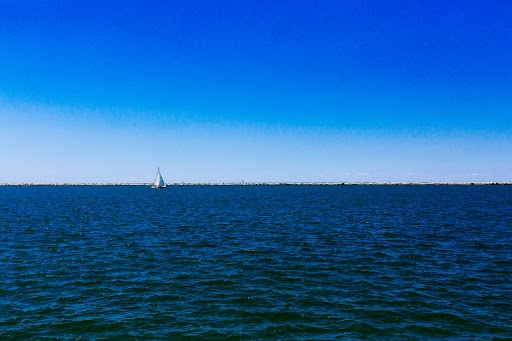The Great Lakes are celebrated not only for their natural beauty, but also for their pivotal role in supplying drinking water to over 40 million people in both the United States and Canada. However, we often forget how few legal protections these waters have!
A newly introduced bill in the New York State Assembly could begin to change that. The Great Lakes and State Waters Bill of Rights would recognize that the Great Lakes and their watersheds have the fundamental legal rights to exist, flourish, and regenerate! Most importantly, these rights could be enforced against corporations and polluters in court if the bill is passed.
Lake Erie and Lake Ontario supply drinking water to over six million New Yorkers, yet these critical bodies of water are under siege. Experts state that there are billions of gallons of raw sewage entering the lakes, invasive species, increasing toxic algae blooms, and ongoing industrial pollution that represent serious threats not only to the health of the ecosystems, but also for humans. Dr. Sherri Mason of Gannon University in Erie, Pennsylvania, estimates that over 22 million pounds of plastic are dumped in the Great Lakes each year.
The proposed Great Lakes Bill of Rights stems from the growing Rights of Nature movement, which argues that our earth’s ecosystems should have enforceable legal rights. Supporters of this movement argue that without a fundamental shift in how we view natural systems, they will continue to be exploited for short-term gain.
What the bill proposes is listed below:
- Recognizing that the Great Lakes, watersheds, and all New York waters have legal rights to exist, regenerate, and be restored;
- Prohibits the privatization, monetization, or ownership of New York’s public waters;
- Protects Indigenous treaty rights and affirms tribal sovereignty over ecosystems;
- Empowers municipalities and counties to pass local Rights of Nature laws that are free from state preemption (meaning that localities are free to pass legislation without looming oversight from the state).
Lee Willbanks, President of Talking Rivers, emphasized that “at this critical juncture as it becomes apparent that the federal government is going to scale back, if not outright abandon, efforts to protect our environment, in particular our waters, it is vitally important that state and local governments step up in a major way. The Great Lakes and State Waters Bill of Rights is that major step forward.” Talking Rivers is a long-standing partner of Freshwater Future, a staunch advocate for the rights of nature, and helped shape the language of this bill to ensure all of New York’s waters are protected.
It is evident that the stakes are high. The Great Lakes contain 95% of the United State’s surface freshwater and without new legal frameworks to protect them, business-as-usual practices could push this critical resource toward irreversible damage.








